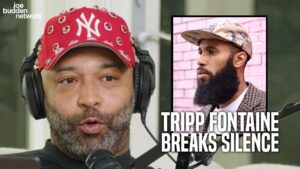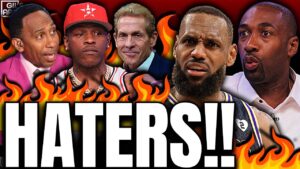Billy Bragg, a figure synonymous with politically charged folk-punk, has spent his career using music as a weapon for social change. In a recent conversation with Bruce Headlam, Bragg reflects on his early life, his first trip to the U.S., and the political power of music. Through his candid storytelling, the English musician sheds light on his inspirations, his evolution as an artist, and his journey from the back rooms of Barking to becoming one of the most significant political voices in music.
In this episode of ‘Broken Records’, Bruce Headlam sits down with Billy Bragg to discuss the role of music as a political tool and its potential to drive change. Billy also reflects on his first U.S. tour in 1984, where he opened for Echo & the Bunnymen, and his collaboration with Wilco to bring Woody Guthrie’s unpublished songs to life.
Billy Bragg’s first taste of the United States came in 1984, when he opened for Echo & the Bunnymen during their U.S. tour. As a young musician, Bragg spent most of his time on tour buses, witnessing firsthand the vastness of the country. This trip was a revelation, offering him a unique perspective on America’s cultural diversity. One of the highlights was his visit to Graceland, just before it underwent renovations, as well as his immersion in the rich musical heritage of New Orleans.
Bragg’s early musical influences were steeped in the American soundscape. He fondly recalls Elvis Presley’s political period in the late ’60s, which was a significant inspiration. A defining moment came when he encountered Simon & Garfunkel’s ‘The Boxer’, an album that changed the way he approached music. Alongside the sounds of Motown and American singer-songwriters, Bragg started to develop his own musical identity. Interestingly, he began writing songs in his head long before learning to play any instruments, finding his true voice in the process.
Growing up in Barking, Bragg faced his share of challenges, including bullying that led to social anxiety. Music became his sanctuary, offering both therapy and a medium for self-expression. He fondly remembers retreating to his mother’s back room with friends to escape the pressures of everyday life, using songwriting as a way to channel his emotions and find peace.
Although Bragg didn’t come from a politically active family, his political consciousness was deeply shaped by American music. Inspired by the civil rights anthems of the era, he was drawn to Motown’s evolution in the late 1960s, which sparked his awareness of the power of music to drive political change. This led him to get involved with the “Rock Against Racism” movement, marking his first steps into political activism.






